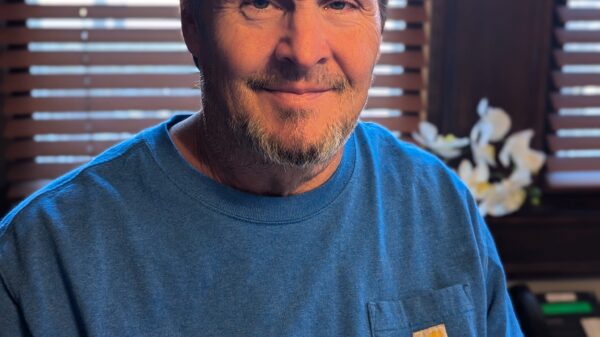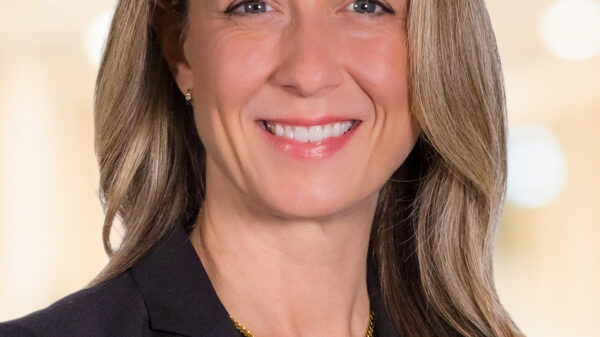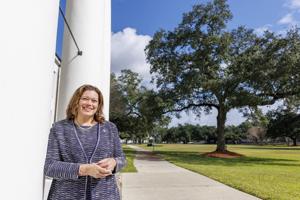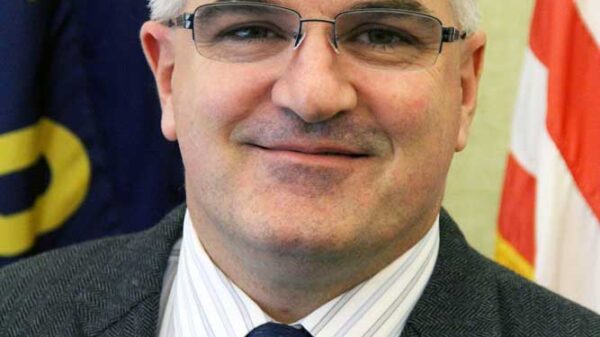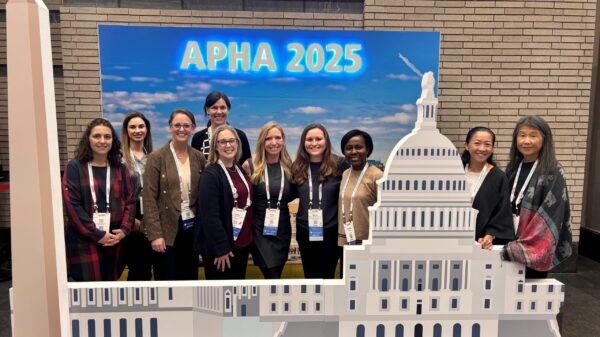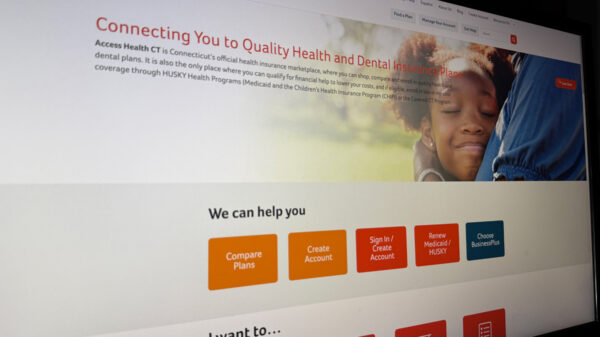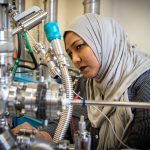Laiba Bilal, a dedicated scholar originally from Karachi, Pakistan, graduated from Stony Brook University in May 2024 with a PhD in electrical engineering. Her achievement is remarkable, not merely for the degree itself but for the extensive journey she undertook over nearly two decades to reach this milestone.
Bilal’s academic path began in 2005 when she completed her Master’s degree at the GIK Institute in Pakistan and was accepted into the PhD program at Stony Brook. However, a significant life change occurred when she married during her final semester. “I came home to Karachi for three weeks during winter break for the ceremony and then went back to complete my MS, as I still had one semester to go,” she recalled. The transition to married life and the geographical distance from her studies forced Bilal to pause her pursuit of a PhD.
“Letting go of something I had worked so hard for wasn’t easy, but at the time it felt like the right choice,” she said, recognizing the challenges of managing a new family alongside academic aspirations.
In 2007, she attempted to enroll in a local PhD program, only to discover it was unaccredited. A second attempt in 2011 at Pakistan’s National University of Sciences and Technology also fell short. “I completed all the coursework, but those two years were among the most emotionally difficult of my life,” she explained, facing societal pressures that suggested a PhD was not suitable for women, particularly for those who were mothers.
After stepping away from academia to raise her three daughters, Bilal relocated to the United States, where her children grew older and her dream of earning a PhD reignited. In 2021, she successfully returned to Stony Brook University’s PhD program.
Support and Mentorship Propel Bilal Forward
Bilal thrived in her new environment, benefitting from the support of faculty members like Thomas Robertazzi, a professor in the Department of Electrical and Computer Engineering, and the late Matthew Eisaman, an assistant professor in Physics and Astronomy. Their encouragement reaffirmed her belief that returning to academia could lead to personal and professional growth.
A pivotal moment in her PhD journey occurred in 2022 when she joined Anibal Boscoboinik‘s research group at the Center for Functional Nanomaterials at Brookhaven National Laboratory. Boscoboinik, an adjunct professor at Stony Brook, provided mentorship that transformed Bilal’s experience. “He offered steady encouragement, quiet confidence, and support that helped me find myself again,” she stated.
Boscoboinik praised her technical abilities and determination, noting, “Her PhD work focused on the development of noble gas trapping materials, rooted in fundamental surface science. What made her contributions particularly noteworthy was her ability to successfully translate this foundational research into engineered materials that are now a step closer to real-world applications that can directly benefit society.”
Bilal’s success is also attributed to her department advisor, Mónica Bugallo, who collaborated with Boscoboinik to ensure a smooth transition between Stony Brook and Brookhaven. “Laiba’s journey is truly inspiring,” Bugallo remarked, highlighting Bilal’s resilience and advocacy for women in STEM fields.
A Legacy of Achievement and Mentorship
In addition to her research, Bilal earned several accolades, including the Association for Women in Science (AWIS) Career Re-entry Scholarship Award in 2022, a Clean Energy Technology Transfer Fellowship in 2023, and the People’s Choice Award at the Three-Minute Thesis Competition in 2024. Graduating with a GPA of 4.0, she emphasized that these awards represented her healing and determination to return to academia.
“Her leadership extended well beyond the lab bench,” Boscoboinik added, pointing out her role as chair of the Users Executive Committee and her efforts to mentor students. Currently, she guides a team working to commercialize the noble gas trapping technology she helped develop.
Bilal credits her family for their unwavering support throughout her journey. She reflects on her father’s encouragement, stating, “Pursuing engineering as a woman in Pakistan wasn’t common at the time, but my father supported me wholeheartedly until his passing.” After his death, her mother became her greatest cheerleader. Even after moving to the U.S., her father-in-law recognized her ambition and urged her to persist in her academic goals.
Bilal’s success demonstrates the importance of believing in oneself. She shared, “It’s never too late to begin again. Even the eagle retreats to shed its feathers and regrow its beak, only to soar higher when it returns. Sometimes stepping back is just nature’s way of preparing you to rise even stronger. Where there’s a will, there’s always a way.”
Now, as a fellow at the Center for Functional Nanomaterials, Bilal leads a project focused on the commercialization of materials developed during her PhD research. While she actively explores postdoctoral opportunities, she expresses a strong interest in remaining at Stony Brook University. “My eldest daughter is joining SBU this fall as an Honors Scholar,” she said. “I am aiming to get into the IRACDA Postdoctoral Fellowship in Fall 2025, as it aligns perfectly with my passion for research, inclusive STEM education, and mentoring underrepresented students.”
Laiba Bilal’s story serves as a powerful testament to resilience, support, and the unwavering pursuit of academic dreams, inspiring many to follow their paths regardless of the obstacles they may face.















